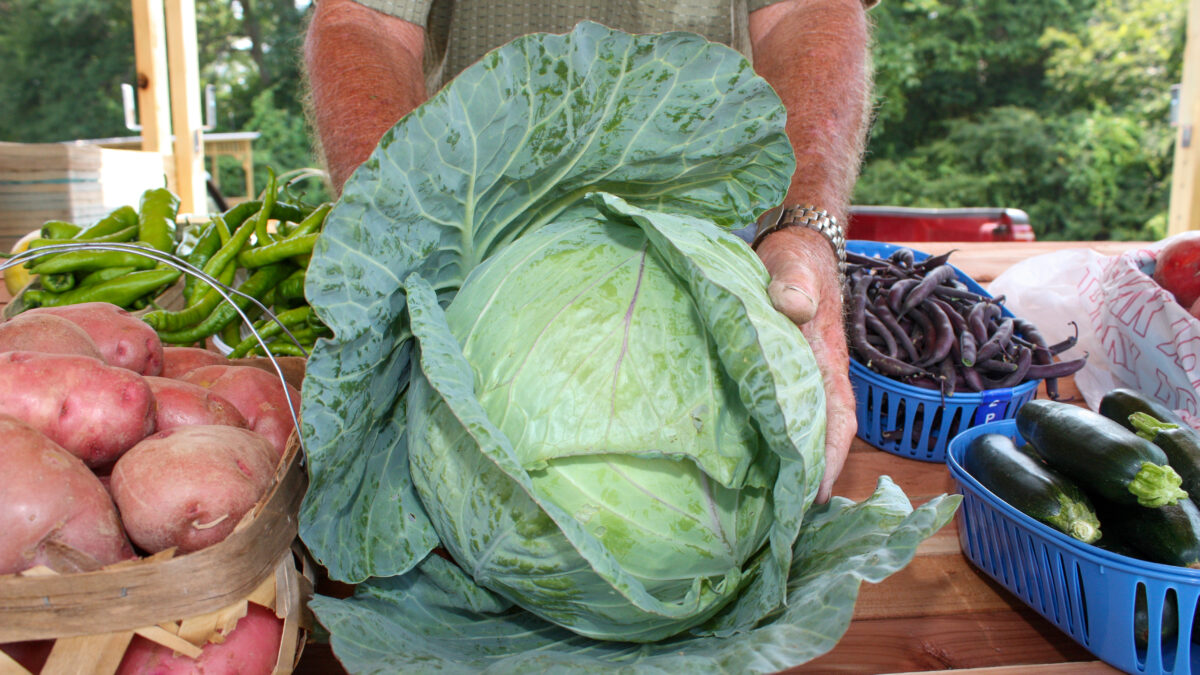What’s a Millennial in the Produce Aisle to do?
Guest Author
Special Contributor to FB.org

photo credit: Alabama Farmers Federation, Used with Permission
Guest Author
Special Contributor to FB.org
By Kari Barbic
My dad taught me all I know about selecting the best fruits and vegetables at the grocery store. He taught me how to judge ripeness, how to look for water damage and—most importantly—how to taste test in the field. He also taught me to not discriminate between organic and conventional. Both had value as long as they met my dad’s strict quality control standards. As you may have guessed, my dad’s office is not indoors. He’s specialized in tree fruit production in California’s Central Valley for more than three decades and farmed a few of his own acres. For my dad, the goal is getting quality produce to customers in the Golden State and beyond, and seeing his friends and neighbors succeed in their farm businesses.
Even though I now live on the opposite coast from where I grew up, I apply the principles my dad taught me, regardless of where I shop. Perhaps, I’m a stereotypical millennial, but when a national health-food grocery chain opened in my Washington, D.C., neighborhood recently, it was cause for celebration. The store labels its produce conventional and organic, and to me that’s a good thing, because I can choose both.
Whether it's conventional or organic, I trust the quality of American grown produce.
After I’ve scanned the produce section at least once to get the lay of the land, my choices come down to three basic factors: quality, price and nutrition.
Whether it's conventional or organic, I trust the quality of American grown produce. I’ve had the privilege of seeing first-hand how many of our favorite fruits and veggies are grown, harvested, packed and shipped. After that fresh produce has made the journey to my D.C. grocery store, I’m there to look for leafy greens, fruits and vegetables fresh enough to survive the work week. While I can’t pick up roadside strawberries on Pennsylvania Avenue, local produce is sometimes available at area markets, thanks to farmers near the metro area.
Like most shoppers, price is going to be a major factor in my decisions. I am happy to buy conventionally grown carrots for a dollar less, as I know they are just as safe and nutritious. I’m just as happy to splurge on organic heirloom carrots when I want a fancier side of roast veggies for the menu. The choice here is about what fits my budget and meal plan needs for the week.
Of course, the main reason I’m even in the produce aisle in is nutrition. When I’m purchasing cherry tomatoes, I’m reaching for the freshest looking containers in the display. My end goal is to get a delicious dose of vitamin C—regardless of whether those tomatoes were treated to ward off greedy insects. This summer, I’ll select my favorite red seedless grapes and enjoy a bit of nature’s candy.
No matter the ratio of organic to conventional purchases in my shopping cart, my purchases are supporting hard-working farmers who care for their land and make choices that best fit their business and meet market demands. These are choices I can feel good about, and that I trust my dad can be proud of.
Kari Barbic
Director, Communications